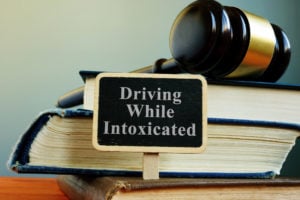
When the police pull you over on suspicion of DWI (driving while intoxicated), you must comply with taking a blood or breath alcohol test under Texas law. If you refuse to take or fail the test, a civil process known as the Administrative License Revocation (ALR) program could require the Department of Public Safety to suspend or disqualify your driver’s license.
Perhaps you’ve never heard of the ALR program or are simply unfamiliar with it. A Houston DWI lawyer can explain what the ALR program is, how the process works, and why it’s in your best interest to have a lawyer on your side.
The ALR Program in Texas
The ALR Program is a civil process in the state of Texas. Under this process, the Texas Department of Public Safety has the authority to suspend or disqualify your driver’s license if you refuse to take or fail a blood or breathalyzer test to measure your blood alcohol concentration (BAC) level.
You could also lose your license if your blood or breath alcohol test registers 0.08 or more while operating a non-commercial vehicle, such as your personal car, truck, or SUV. Operating a commercial vehicle with a BAC of just 0.04 or more puts your license at risk.
After being served notice to take a breath or blood test, you have the right to request a hearing to reverse the suspension or disqualification of your license. You also have the right to appeal if the judge does not rule in your favor.
For a legal consultation, call (713) 225-1900
How Does the ALR Process Work?
The ALR process begins as soon as law enforcement suspects a driver may be drunk and pulls them over to administer a field sobriety test (such as a blood test or breathalyzer test). You can expect the following steps to occur:
- The officer will ask you to comply with a field sobriety test. Failure to do so will result in the suspension of your license.
- The officer will take your license, issue a suspension notice, and provide you with a temporary permit.
- You can request a hearing to contest the suspension within 15 days of the date of suspension or let the suspension take effect in 40 days.
However, the ALR process is different if you do comply with the breath or blood test:
- If you comply with the test, the officer will allow you to keep your license until the test results come back. Breath test results come back immediately, blood tests take some time.
- If the test shows your BAC was above the legal limit, your license will be suspended. If you fail a breath test, the officer will give you a copy of the suspension notice. If it’s a blood test, you will receive a suspension notice in the mail.
- You have 15 days to request a hearing to challenge the suspension.
- The suspension will take effect in 40 days if you do not contest it.
If you don’t request a hearing and your license is suspended, you will have to pay a reinstatement fee. To get your license back after the suspension concludes, you must pay a reinstatement fee of $125 plus any other fees you owe.
Is an ALR Hearing Part of a Criminal Case?
No, the ALR process is not part of the criminal justice process. If you receive a DWI charge in Texas, you will face a criminal case against you in the county where you were stopped and arrested. This is the criminal proceeding side of your case.
The civil proceeding is where the ALR program comes into play. Civil prosecutors from the Department of Public Safety will argue for the suspension or disqualification of your license to stand. This is an entirely separate procedure that has nothing to do with your criminal case.
Click to contact our Houston lawyer today
What Happens at an ALR Hearing?
The Department of Public Safety will process your request for a hearing and schedule it within 120 days. You will be sent a notification of the date, time, and location of your hearing, which will be held at the State Office of Administrative Hearings with an administrative law judge presiding.
Attorneys representing the Department of Public Safety will present their case against you for the judge to uphold the suspension. Hiring a DWI lawyer from our firm gives you the opportunity to present a defense, which can include challenging the prosecution’s evidence, presenting your own evidence, cross-examining witnesses (such as the police officer in question), and more.
You do not have to be present at an ALR hearing. Instead, your lawyer can argue your case on your behalf, sparing you from being called as a witness and possibly incriminating yourself. After both sides present their case, the judge will issue a ruling.
Complete a Case Evaluation form now
How Likely Are You to Win an ALR Hearing?
Unless the police officer fails to show up, the likelihood of reversing the suspension of your license is small. However, it is possible to win with the assistance of an attorney. A hearing also delays the suspension of your license by up to four months, and we can use the hearing to discover information that may aid your criminal case.
How Long Is an ALR License Suspension or Disqualification?
A typical license suspension lasts between 60-180 days, depending on the circumstances of your case. Suspensions after a first DWI offense generally last 90 days. However, if you refuse a blood or breath alcohol test for a second time, the suspension could last for two years.
If your license is disqualified, it will likely be for 90 – 180 days for a first DWI offense. You could receive a longer disqualification if you have prior DWI convictions.
Learn More About the ALR Program and How a DWI Lawyer Can Help
A DWI lawyer from our firm can represent you at your ALR hearing and your criminal hearing. Attorney Jay Blass Cohen is certified as a ACS-CHAL Forensic Lawyer-Scientist and in forensic chromatography for both alcohol and drugs, giving him a unique understanding of DWI laws and the science behind blood and breath alcohol testing. His case results speak for themselves.
If you’re facing a DWI charge and the suspension of your license, contact us today to schedule an initial consultation about your case and learn more about the ALR Program.
Call or text (713) 225-1900 or complete a Case Evaluation form


